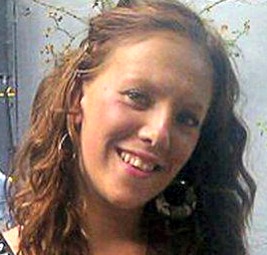Just Before Organ Harvesting, Comatose Patient Recovers
The survival of an accident victim diagnosed as ‘brain dead’ triggers an end-of-life debate in Denmark.

AARHUS, Denmark — Carina Melchior is a 20-year-old Danish woman who was plunged in the middle of controversy by two close encounters with death — the first in a car crash last year that put her in a coma; the second in a hospital, where doctors persuaded her parents to donate her organs and shut off her life support.
But Carina recovered, and she now is at the center of a storm of questions about the criteria for brain death, over-aggressive transplant agencies and the commodification of the human body.
What might have been played out quietly in an obscure Danish civil-law courtroom became a national cause célèbre with the airing early in October of a TV documentary called Pigen Der Ikke Ville Do (The Girl Who Refused to Die) that was viewed by 1.7 million people.
The documentary follows the Melchior family as they learn of the seriousness of Carina’s injuries, are told she cannot recover because her brain is dead, and are asked to donate her organs to people who need them.
Carina’s father, Kim Melchior, asks if there is any chance of “a small miracle anywhere.” None, the medical staff at Aarhus University Hospital reply.
But a few days after being taken off her respirator, while hospital attendants are waiting for her body to shut down, Carina began to move her legs and open her eyes.
The documentary shows her awake and expressing confidence in her ability to recover, get her own apartment, begin work and resume her pastime of horse jumping.
“I will be working as a graphic designer and be able to ride Mathilde properly,” she tells the interviewer.
The hospital administration reacted with a mixture of embarrassment at their mistake and pleasure at the girl’s recovery.
“We are overjoyed that the young woman has survived and that she is moving on after the accident,” said chief medical officer Claus Thomsen.
The hospital has apologized for asking permission of her parents prematurely, while insisting that there was no chance that organ harvesting would have proceeded while the girl was still breathing.
Brain-Death Criteria
Indeed, taking a patient off life support is a good final test of brain death, according to Father Tadeusz Pacholczyk, director of education at the National Catholic Bioethics Center in Philadelphia. But this should occur only after many other tests have been conducted that indicate brain death with “moral certitude.”
In the eyes of the Catholic Church, “Brain death is death,” Father Pacholczyk said.
“Stories of people waking up after being declared brain dead typically indicate a failure to apply the tests and criteria for determination of brain death with proper attentiveness and rigor,” said Father Pacholcyzk, who earned his doctorate in neuroscience from Yale and did post-doctoral work at Harvard. “In other words, corners were likely cut in carrying out the testing and diagnosis.”
But Carina’s parents believe there is more involved than inattention.
“Those bandits in white coats gave up too quickly because they wanted an organ donor,” Carina’s father told a Danish paper. Reportedly, the parents plan to sue.
Most Danes evidently disagree with the family’s judgment. Even though a tabloid added to the furor by reporting a 2002 case of a man who recovered after being declared brain dead, Danes flooded the website of the national organ donor organization with more than 3,000 mostly positive hits. While 500 revoked permission to harvest their organs, the organization’s spokesman, Bjorn Ursin Knudsen, said the rest were there to give permission or to alter the terms of permissions already given.
Dr. Sven Frederick Østerhus of the Danish pro-life group Laeger Mod Abort (Doctors Against Abortion) told the Register that because “all health care is covered completely by the national health services, so [that] neither the donor, the recipient nor the doctors involved have any financial conflicts of interest, most Danes — Christian or not — welcome the idea they can save another life through organ donation.”
‘Mechanical’ Doctors
But Torben Riis, head of the Danish pro-life group Respekt for Menneskeliv (Respect for Human Life), said there could still be a conflict of interest without financial gain in cases like Carina’s if the doctor’s “main concern was to harvest organs from the patient, not to serve the patient's best (interest).”
But Riis goes further, suggesting that the medical profession has gradually adopted a mechanistic view whereby human life is reduced to its parts. “I have no doubt that the attitude of Danish doctors to life and death has undergone a change for the worse in the last decades partly due to the legalization of abortion on demand in 1973,” said Riis. “Too many modern doctors understand themselves as a sort of mechanic repairing machines rather than caring for other human beings.”
Dr. Roland Chia, a theology professor at Singapore’s Trinity Theological College and a member of Singapore’s ethical watchdog committee for organ transplants, shares these concerns, while acknowledging that “donation of an organ without reward is an act of great nobility.”
But Chia, who is the author of The Ethics of Human Organ Trading, cautioned that transplanting is “morally complicated” and becomes repugnant when people sell their own organs and when an active trade in organs develops.
“This sense of repugnance is firmly rooted in our collective psyche and moral sensibility,” said Chia. “It must not be taken lightly, because it reveals a resistance to the view that the human body is just a natural object that can be used at our disposal.”
Register correspondent Steve Weatherbe writes from Victoria, British Columbia.












